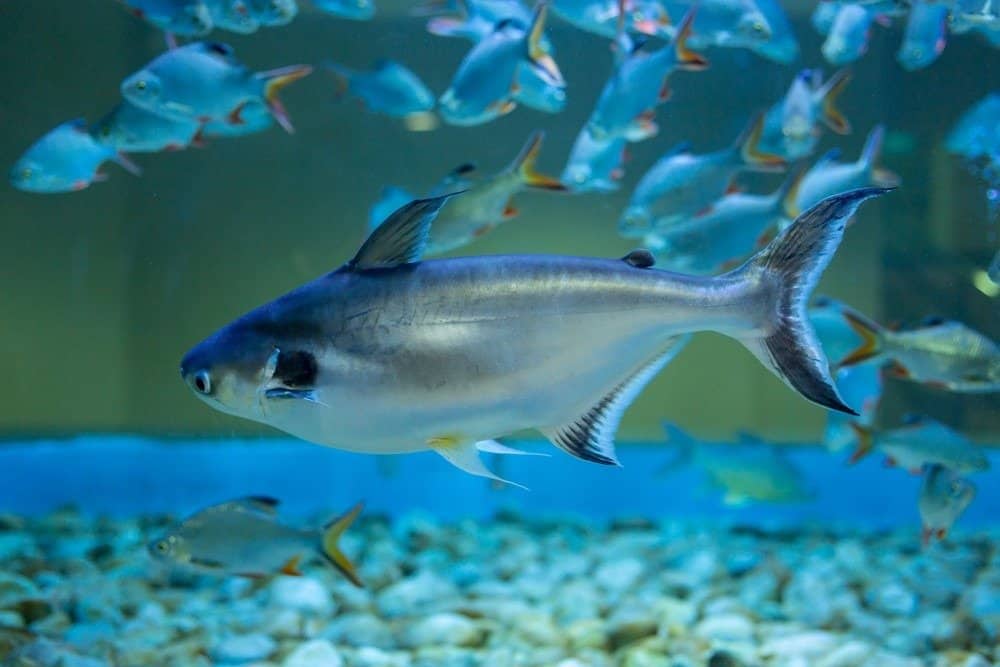Is Swai Fish Kosher? A Deep Dive Into The Controversial Fish And Its Religious Implications
Let’s get straight to the point—swai fish has become quite the hot topic in religious circles, especially when it comes to kosher dietary laws. If you're here wondering whether swai fish is kosher or not, you're in for a wild ride. This little fish from Southeast Asia has sparked debates, raised eyebrows, and left many scratching their heads. So, buckle up, because we’re diving into the murky waters of swai fish and its religious status.
Now, before we dive headfirst into the world of swai fish and kosher laws, let’s take a moment to set the scene. Swai fish, also known as iridescent shark or pangasius, is a type of catfish native to the Mekong River in Vietnam. It’s cheap, easy to farm, and has become a staple in many kitchens across the globe. But here’s the kicker—does it pass the kosher test? That’s what we’re here to find out.
As we unravel the mystery of swai fish, we’ll explore its origins, its classification under kosher laws, and why it’s become such a controversial topic. By the end of this article, you’ll have a clearer understanding of whether swai fish is kosher or if it’s better left off the menu. Let’s get started!
Read also:Unlock The Secrets Of Okkhatrimaza Com Your Ultimate Guide
What is Swai Fish Anyway?
Swai fish, or pangasius, is a freshwater fish that belongs to the catfish family. It’s native to Southeast Asia, primarily found in the Mekong River basin. Known for its mild flavor and flaky texture, swai fish has become a popular choice for those looking for an affordable seafood option. But here’s the thing—its popularity doesn’t mean it’s automatically kosher.
Where Does Swai Fish Come From?
Swai fish is primarily farmed in Vietnam, where it’s raised in large quantities to meet global demand. The farming practices, however, have raised concerns about sustainability and quality. Many critics argue that swai fish is often farmed in overcrowded and polluted conditions, leading to health concerns. But for now, let’s focus on the religious implications.
So, where does swai fish fit into the kosher equation? To answer that, we need to take a closer look at kosher laws and how they apply to fish.
Understanding Kosher Fish
Kosher dietary laws are based on Jewish religious teachings found in the Torah. When it comes to fish, the rules are pretty straightforward—only fish with fins and scales are considered kosher. This means that fish like salmon, tuna, and sardines are kosher, while shellfish like shrimp and lobster are not.
What Makes a Fish Kosher?
To be considered kosher, a fish must have both fins and scales that are visible to the naked eye. These features are crucial because they signify that the fish is clean and suitable for consumption according to Jewish law. So, how does swai fish stack up against these requirements?
Swai fish, unfortunately, does not meet the kosher criteria. It lacks the proper scales required by Jewish dietary laws, making it non-kosher. But don’t worry—we’ll dive deeper into this in the next section.
Read also:Temporary Replacement Hyungry Your Goto Guide For Seamless Substitutions
Is Swai Fish Kosher? The Verdict
Let’s cut to the chase—swai fish is not kosher. According to kosher laws, a fish must have both fins and scales to be considered kosher. Swai fish, however, lacks the proper scales needed to meet this requirement. This means that swai fish is off the menu for those following kosher dietary practices.
Why Is Swai Fish Not Kosher?
The primary reason swai fish is not kosher is its lack of proper scales. While it does have fins, its scales are not visible to the naked eye, which disqualifies it from being considered kosher. This is a key point in the kosher debate surrounding swai fish.
But it’s not just about religious laws. Many people also question the quality and safety of swai fish due to its farming practices. Overcrowded and polluted conditions have raised concerns about its nutritional value and potential health risks. Let’s explore this further in the next section.
Swai Fish Farming Practices: A Cause for Concern
Beyond its kosher status, swai fish has also sparked debates about its farming practices. Many critics argue that swai fish is often farmed in unsanitary conditions, leading to concerns about its safety and quality. This has led some consumers to steer clear of swai fish altogether.
What Are the Concerns About Swai Fish Farming?
- Overcrowded farming conditions
- Polluted water sources
- Use of antibiotics and chemicals
- Potential health risks
These concerns have prompted many to question whether swai fish is worth the risk. While it may be cheap and readily available, its quality and safety remain a topic of debate.
Alternatives to Swai Fish
If you’re looking for a kosher-friendly alternative to swai fish, there are plenty of options to choose from. Fish like salmon, tuna, and sardines are all considered kosher and are great choices for those following kosher dietary practices.
What Are Some Kosher Fish Options?
- Salmon
- Tuna
- Sardines
- Mackerel
- Trout
These fish not only meet the kosher criteria but are also known for their nutritional benefits. So, if you’re looking for a healthier and more sustainable option, these are great choices to consider.
Swai Fish and Health Risks
While swai fish may be affordable and easy to find, its health risks cannot be ignored. Many studies have shown that swai fish is often farmed in unsanitary conditions, leading to potential health concerns for consumers.
What Are the Potential Health Risks of Swai Fish?
Some of the potential health risks associated with swai fish include:
- Bacterial contamination
- Antibiotic resistance
- Chemical residues
- Poor nutritional value
These risks have prompted many health experts to recommend alternatives to swai fish, especially for those with dietary restrictions or health concerns.
Swai Fish in the Global Market
Despite its controversial status, swai fish remains a popular choice in many parts of the world. Its affordability and availability make it an attractive option for budget-conscious consumers. However, its kosher status and health risks continue to raise questions about its place in the global market.
Why Is Swai Fish So Popular?
Swai fish’s popularity can be attributed to several factors:
- Affordability
- Availability
- Mild flavor
- Versatility in cooking
But as consumers become more informed about its farming practices and health risks, many are beginning to question whether swai fish is worth the trade-off.
Conclusion: Is Swai Fish Worth the Risk?
In conclusion, swai fish is not kosher and comes with a host of potential health risks. While it may be cheap and readily available, its farming practices and lack of proper scales make it a less-than-ideal choice for those following kosher dietary practices or concerned about their health.
So, what’s the takeaway? If you’re looking for a kosher-friendly and healthy seafood option, it’s best to stick with fish that meet the kosher criteria and are farmed sustainably. Salmon, tuna, and sardines are all great choices that offer both nutritional benefits and peace of mind.
As always, it’s important to do your research and make informed decisions about the food you consume. And if you have any questions or thoughts about swai fish, feel free to leave a comment below. Let’s keep the conversation going!
Table of Contents
- What is Swai Fish Anyway?
- Understanding Kosher Fish
- Is Swai Fish Kosher? The Verdict
- Swai Fish Farming Practices: A Cause for Concern
- Alternatives to Swai Fish
- Swai Fish and Health Risks
- Swai Fish in the Global Market
- Conclusion


